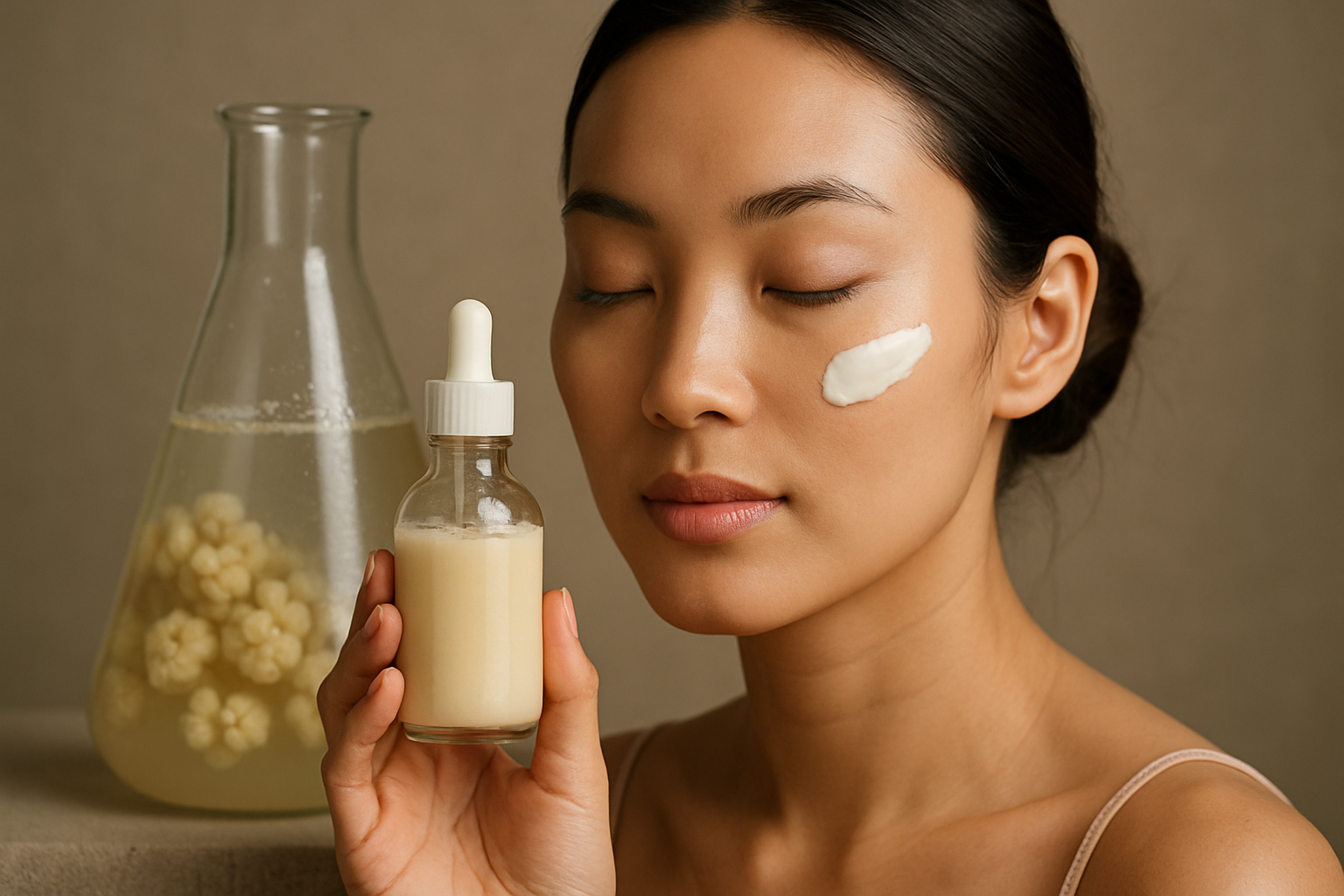Fermented Beauty: The Next Frontier in Skincare
In the ever-evolving world of beauty and skincare, a new trend is quietly fermenting its way to the forefront. Fermented beauty, a concept rooted in ancient traditions yet reimagined for modern skincare, is poised to revolutionize our approach to skin health. This innovative technique harnesses the power of beneficial microorganisms to transform ordinary ingredients into potent skincare elixirs. As consumers increasingly seek natural, effective solutions, fermented beauty offers a unique blend of science and tradition that's capturing the attention of skincare enthusiasts and experts alike. From Korea's time-honored beauty secrets to cutting-edge laboratory research, the fermentation process is unlocking new possibilities in the quest for radiant, healthy skin.

Moreover, the fermentation process can increase the concentration of vitamins, particularly B vitamins, which are crucial for skin health. It also produces organic acids that can help balance the skin’s pH and strengthen its natural barrier function. Skincare formulators are particularly excited about the potential of fermented ingredients to address a wide range of skin concerns, from aging to acne, in a more gentle yet effective manner than traditional chemical treatments.
Historical Roots and Modern Revival
The use of fermented ingredients in beauty is not entirely new. In fact, it has deep roots in Asian skincare traditions, particularly in Korea and Japan. For centuries, these cultures have used fermented rice water, soybean, and other plant-based ferments in their beauty rituals. The geisha of Japan, for instance, were known to use fermented rice bran to brighten and soften their skin.
In recent years, there has been a resurgence of interest in these traditional practices, driven by the global popularity of K-beauty and a growing consumer desire for natural, sustainable skincare solutions. Modern skincare brands are now revisiting these ancient techniques, combining them with advanced scientific research to create innovative products that cater to contemporary skincare needs.
This revival has led to the development of a wide range of fermented skincare products, from essences and serums to masks and creams. These products often boast improved efficacy and stability compared to their non-fermented counterparts, making them increasingly popular among skincare aficionados and industry professionals alike.
Key Benefits of Fermented Skincare
Fermented skincare offers a multitude of benefits that set it apart from conventional products. One of the primary advantages is enhanced ingredient absorption. The fermentation process breaks down molecules into smaller sizes, allowing them to penetrate deeper into the skin layers. This increased bioavailability means that active ingredients can work more effectively, potentially delivering better results with lower concentrations of actives.
Another significant benefit is the production of beneficial byproducts. During fermentation, microorganisms create various compounds such as amino acids, antioxidants, and lactic acid. These byproducts can have powerful skin-nourishing properties, helping to improve skin texture, boost hydration, and combat signs of aging.
Fermented ingredients also tend to have a lower pH, which is closer to the skin’s natural pH level. This can help to maintain the skin’s acid mantle, strengthening its barrier function and protecting against environmental stressors. Additionally, the fermentation process can neutralize potentially irritating compounds, making fermented skincare products often more suitable for sensitive skin types.
Lastly, fermentation can extend the shelf life of skincare products naturally, reducing the need for artificial preservatives. This aligns well with the growing consumer demand for clean, preservative-free beauty products.
Popular Fermented Ingredients in Skincare
As the fermented beauty trend gains momentum, a variety of ingredients are taking center stage. Fermented tea extracts, particularly from green and black teas, are becoming increasingly popular due to their high antioxidant content and potential anti-aging benefits. These fermented tea extracts are often more potent than their non-fermented counterparts and can help protect the skin from oxidative stress and premature aging.
Fermented rice water is another key player in this trend. Rich in vitamins, minerals, and amino acids, fermented rice water is believed to brighten the complexion, improve skin elasticity, and provide intense hydration. It’s often found in toners and essences, staples of the Asian skincare routine.
Fermented soy extract is gaining attention for its potential to improve skin firmness and reduce the appearance of fine lines and wrinkles. The fermentation process enhances the bioavailability of soy’s isoflavones, which are known for their skin-rejuvenating properties.
Other popular fermented ingredients include various fruit and vegetable extracts, such as pumpkin, radish, and ginseng. These fermented botanicals often boast higher concentrations of vitamins and antioxidants compared to their fresh counterparts, offering potent skin-nourishing benefits.
The Future of Fermented Beauty
As research in this field continues to advance, the future of fermented beauty looks promising. Scientists are exploring new fermentation techniques and investigating a wider range of ingredients to unlock even more skincare benefits. There’s growing interest in combining fermented ingredients with other innovative skincare technologies, such as microbiome-friendly formulations and personalized skincare solutions.
The sustainability aspect of fermented beauty is also likely to drive its growth. Fermentation can be a more environmentally friendly production method, often requiring less energy and producing less waste than traditional extraction processes. This aligns well with the increasing consumer demand for sustainable and eco-friendly beauty products.
Moreover, as consumers become more educated about skincare ingredients and processes, there’s a growing appreciation for the complex science behind fermented beauty. This trend is likely to push brands to be more transparent about their fermentation processes and the specific benefits of their fermented ingredients.
In conclusion, fermented beauty represents an exciting convergence of ancient wisdom and modern science in the skincare world. As more research emerges and innovative products hit the market, it’s clear that this trend is more than just a passing fad. Fermented skincare has the potential to revolutionize our approach to skin health, offering effective, gentle, and sustainable solutions for a wide range of skin concerns. As we look to the future, fermented beauty is set to play a significant role in shaping the next generation of skincare innovation.





